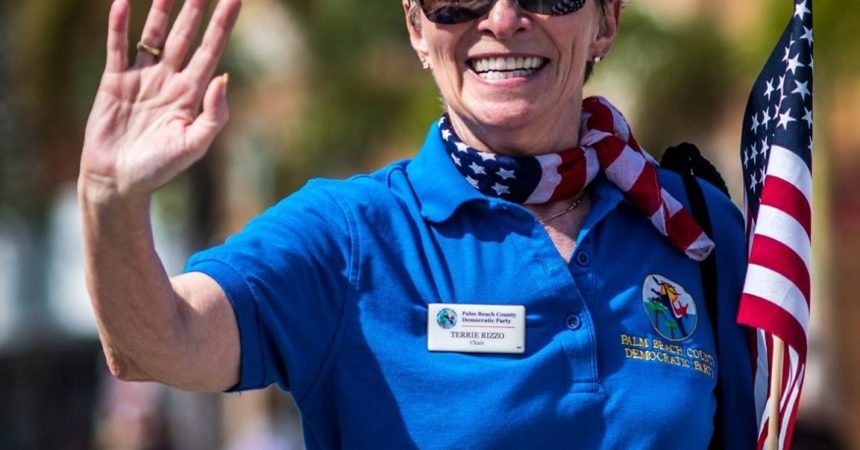
Florida ‘dreamers’ hail high court ruling
A split U.S. Supreme Court ruling last Thursday that upheld federal protections for young undocumented immigrants reverberated throughout Florida, a state that roughly 32,000 “Dreamers” call home.
The Deferred Action for Childhood Arrivals program, known as DACA, shields undocumented immigrants who were brought to the country as children from deportation and allows them to work in the U.S.
President Donald Trump’s administration has tried to dismantle the program, prompting lawsuits that resulted in last Thursday’s 5-4 court decision.
Karen Caudillo, a DACA recipient who lives in Orlando, came to the U.S. with her parents as a 4-year-old, she told The News Service of Florida.
Hearing about the court decision was an unexpected and emotional moment, Caudillo said, especially after talking to her mother, who is an undocumented immigrant from Mexico.

Terrie Rizzo, chair of the Florida Democratic Party said her party is committed to work toward “compassionate and comprehensive immigration reform.”
Photo special to the Outlook
Photo special to the Outlook
“My parents have sacrificed so much. This morning, my mom broke down in tears on Facetime and she was just like, all our sacrifices are worth it. You are invincible and don’t let anybody tell you that you don’t deserve to be in your home,” Caudillo, 24, said in a telephone interview.
Caudillo said she has been living under the federal program’s protection since 2013. The program was launched in 2012 by then-President Barack Obama.
While the court upheld the program on last Thursday, Caudillo and other undocumented immigrants in Florida remain cautious about their temporary legal status because the ruling did not block the Trump administration from ending the program.
Instead, the court’s 5-4 majority of justices found that the Trump administration failed to adequately justify the decision to shut down the program.
“We do not decide whether DACA or its rescission are sound policies,” Chief Justice John Roberts wrote in the majority opinion joined by the court’s four more liberal-leaning justices. “We address only whether the agency complied with the procedural requirement that it provide a reasoned explanation for its action.”
The court, however, said the administration could try again.
As a presidential candidate, Trump pledged to end DACA and moved to terminate the program after taking office in 2017. Trump and other opponents say the program rewards people for breaking the law and encourages illegal immigration.
“Many of the people in DACA, no longer very young, are far from ‘angels.’ Some are very tough, hardened criminals,” Trump said in a tweet last year.
The president slammed last Thursday’s ruling, which came on the heels of a Tuesday U.S. Supreme Court decision establishing that LGBTQ workers are covered by federal anti-discrimination laws.
“Do you get the impression that the Supreme Court doesn’t like me?” Trump tweeted to his 82.2 million Twitter followers on last Thursday.
“As President of the United States, I am asking for a legal solution on DACA, not a political one, consistent with the rule of law. The Supreme Court is not willing to give us one, so now we have to start this process all over again,” he added.
Florida was among several states that sided with the Trump administration in the DACA lawsuit.
“The executive has correctly concluded that DACA is unlawful. No law mandates the policy choices DACA embodies,” the states wrote in a friend-of-the-court brief filed in 2018.
The court ruling, which could affect an estimated 700,000 undocumented immigrants across the country, also triggered reactions from Florida Democrats and presumptive Democratic presidential nominee, former Vice President Joe Biden.
“The Supreme Court’s ruling today is a victory made possible by the courage and resilience of hundreds of thousands of DACA recipients who bravely stood up and refused to be ignored,” Biden said in a prepared statement. “As president, I will immediately work to make it permanent by sending a bill to Congress on day one of my administration.”
Florida Democratic Party Chair Terrie Rizzo issued a statement saying her party is committed to work toward “compassionate and comprehensive immigration reform.”
The goal was echoed by Congresswoman Debbie Mucarsel-Powell, a Florida Democrat who is pushing the U.S. Senate to pass legislation that gives DACA recipients a pathway to citizenship.
Mariana Castro, a 26-year-old who lives in Orlando, said it has been an “emotional roller coaster” to be a recipient of the federal program’s benefits.
Castro said she was elated when she heard Obama was creating the DACA program and crushed when Trump vowed to take away her temporary protection.
Castro, who has had DACA protection since 2013, said her Peruvian parents brought her to the U.S. when she was 10 years old.
Castro said the federal program has allowed her to work, which has helped her pay for college. But she said she wants to become a citizen so she can receive other benefits, such as being free to travel back to Peru to see her family without restrictions.
Leaving the country can be risky for DACA recipients, who cannot travel outside of the U.S. without being granted permission by U.S. immigration authorities. Even if they are allowed to travel, DACA recipients face the possibility of being denied re-entry to the U.S. when they return home.
“It is just the simple things like leaving the country to be able to bury your father. That was not something my mom was able to do and I don’t even know if I’ll have the privilege to do that,” Castro said in an interview last Thursday.
Luisa Santos, a former DACA recipient who is now a U.S. citizen, told the News Service that she felt “physical relief” when she heard about the court ruling.
“Although I am not DACA at this moment, and I’m formerly undocumented, I know fear,” said Santos, 29. “I think as Dreamers and former Dreamers we have learned to never let your guard down … because we know no decision is permanent until we get citizenship.”
Undocumented immigrants who came to the U.S. as children are commonly referred to as “Dreamers,” based on failed congressional proposals known as the “DREAM Act.”
Last Thursday’s decision “inspires me to never give up because through persistence and hard work, we will overcome any obstacle and challenge,” said Santos, a candidate for the School Board of Miami-Dade County.
“My lived experience is not representative of every student in our schools, but it certainly has lit a fire within me to fight for equity and justice and ensure that every child has an opportunity,” she said.






